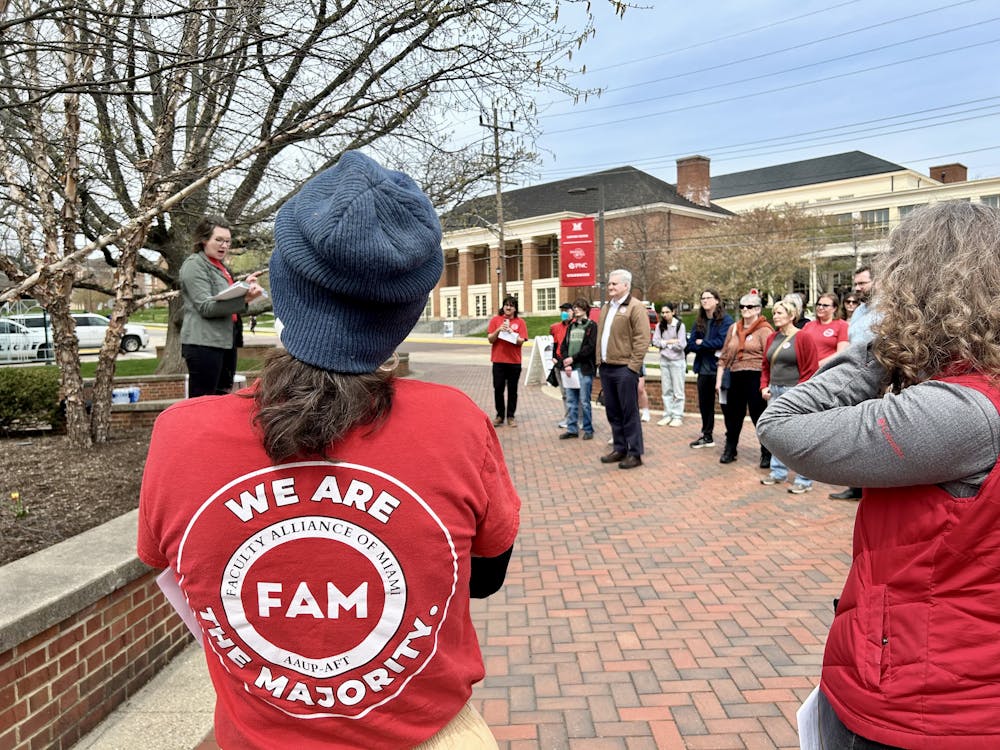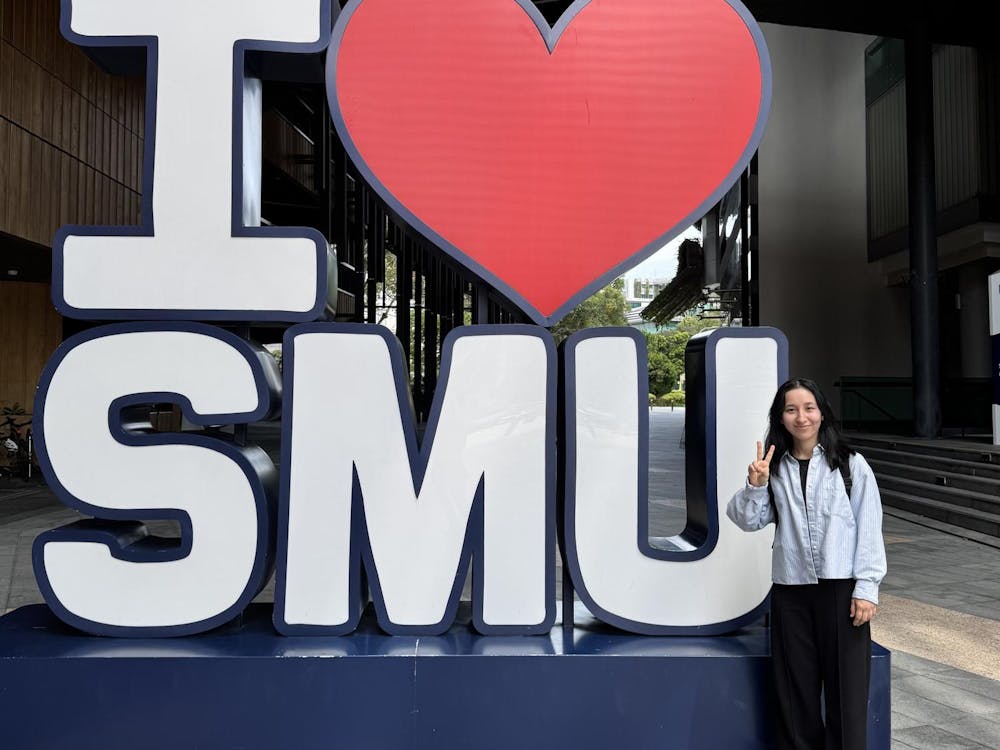A version of this op-ed was delivered as a speech at the April 17 Hands Off Higher Education rally organized by the Ohio Student Association (OSA) in collaboration with the Faculty Alliance of Miami (FAM).
This month, President Donald Trump issued an emergency order to open all national forests for logging to boost timber production. Supporters of this move say that trees are a renewable resource. They can be replaced. Yet many feel outrage at this pillaging of our natural resources. Why? Because they know that cutting down a forest for its trees is a short-sighted solution.
Education, like national forests, is a public good. A university, like a forest, is an ecosystem. A professor, like a tree, cannot thrive in isolation from that ecosystem. Elimination of programs and departments that do not prioritize profit-seeking outcomes is a slash-and-burn approach to solving projected budget problems. Those faculty lines can be replaced, administrators say, when times are flush.
But what happens when you clear-cut a forest? You are not simply removing trees. You are destroying a fragile, interdependent ecosystem. Professors might seem like a renewable resource, but like a tree, they come to being within the context of their environment, feeding from and giving life to the members of their community.
Under RCM 4.0, the new university budget model announced at the annual budget symposium on April 14, Senior Vice President for Finance and Business Services David Creamer said he supposes that approximately 25% of the current departments at the university will be considered underperforming, and they will be flagged for removal, reducing them to individual line-items on a budget, a single tree with a commodity value equal to its weight in timber.
But these departments are part of the university ecosystem, what we know as the liberal arts. RCM 4.0 wants to allocate funding to students’ chosen first majors, allowing a high school student declaring an incoming major in computer science to determine the viability and fate of a university department that he or she has yet had the opportunity to discover, fall in love with and add as a second major.
Trees and shrubs in the understory play an important role in the health of a forest. They provide soft landing grounds for the larvae of beneficial insects, insects that are fundamental to the food chain and our planetary health. Likewise, our programs that teach students world languages, global perspectives, historical empathy, visual literacy, technical writing skills, creative thinking skills, manual making skills, oral presentation skills and more are also vital components of this educational ecosystem. Their value might not be as readily quantifiable as timber, but they feed from and give life to the larger departments that have more impressive trunks, the ones that signal cash value. Yet those trunks would be malnourished without the organic compounds that flow through them.
Students will take liberal arts skills with them into any career. To be sure, the careers of today will not be the careers of tomorrow, and our graduates will have to adapt to a rapidly transforming employment landscape. A short-sighted approach to cull the educational forest and allow only the strongest trunks to remain standing strips us of our intellectual biodiversity. It leaves us vulnerable to blight. It does not invite or sustain a variety of species.
We might be able to plant new trees, but we can never recover what’s lost when we remove an old-growth forest.
A liberal arts university is an ecosystem.
Save generations of institutional knowledge, cultivated relationships and organic partnerships. Save our intellectual diversity. Protect our public goods.
Enjoy what you're reading?
Signup for our newsletter
Elena Jackson Albarrán is professor of History and the Assistant Chair of the Department of Global and Intercultural Studies. She teaches classes in Latin American Studies, History and Spanish. Her latest book is Good Neighbor Empires: Children and Cultural Capital in the Americas (Brill 2024).
At The Student, we are committed to engaging with our audience and listening to feedback. This includes publishing a diverse array of guest editorials. For more information on guidelines and processes, email Taylor Powers, The Student's opinion editor, at powerstj@miamioh.edu.




